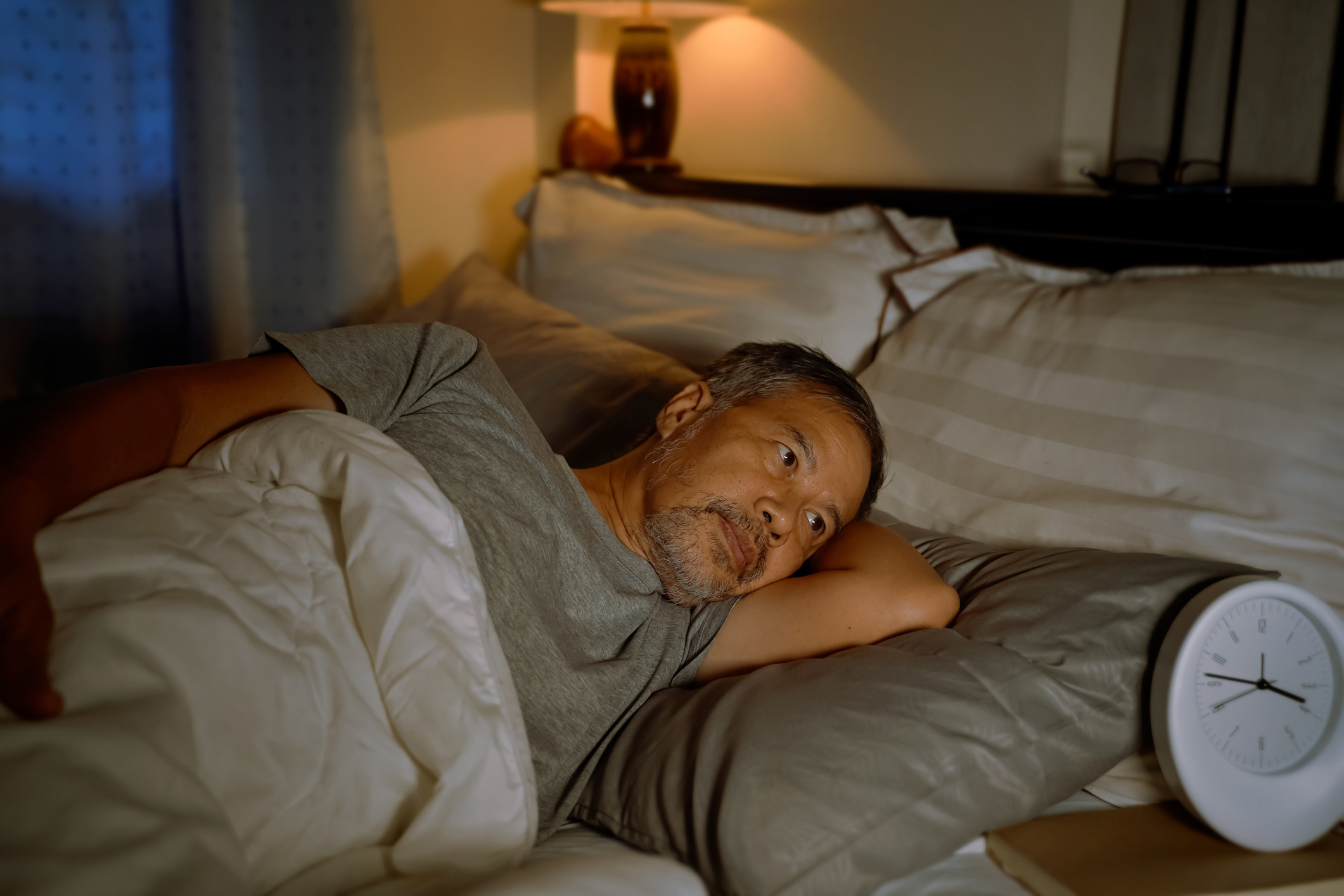Get Easy Health Digest™ in your inbox and don’t miss a thing when you subscribe today. Plus, get the free bonus report, Mother Nature’s Tips, Tricks and Remedies for Cholesterol, Blood Pressure & Blood Sugar as my way of saying welcome to the community!
Why sleep trouble can lead to blood sugar trouble

It never ceases to amaze me how everything is connected to everything else when it comes to matters of health.
And what’s even more amazing is how improving one shortfall can make a huge difference — even a lifesaving one.
That’s the story I’m going to tell you today.
It’s a twisted tale of how bad sleep can trump a healthy diet and set the stage for type 2 diabetes…
Poor sleep, poor blood sugar
While you’re asleep, restorative processes take place. If your sleep is interrupted or cut short, so are these important processes.
If you regularly get less than 7.5 hours of restorative sleep per night, you’re facing the likelihood of developing chronic conditions such as heart disease, kidney disease and hypertension — and diabetes.
Research has already proven that the brain waves produced in deep sleep actually predict glucose control for the next day!
Now a new study has succeeded in pinpointing an association between how long you sleep and your likelihood of developing type 2 diabetes, even when following a healthy diet…
They found that although healthy eating habits were associated with a lower overall risk of diabetes, in people who slept less than six hours a day, the risk of type 2 diabetes increased compared to people in the normal sleep category (getting at least 7.5 hours of sleep).
And the lower the sleep duration, the higher those risks went:
How are sleep and blood sugar connected?
The researchers believe two main factors that could explain their findings…
First, sleep deprivation often leads to an increase in inflammatory markers and free fatty acids in the blood, both of which make the body less responsive to insulin, leading to insulin resistance.
Second, people whose sleep is interrupted, including shift workers, experience disruptions to their body’s natural circadian rhythm.
This can interfere with the release of hormones that meet the body’s energy needs and help keep blood glucose balanced throughout the day. These include glucagon and cortisol.
The daytime secret to better sleep
If you’re concerned about type 2 diabetes, or if you already have pre-diabetes and sleep trouble — this is a wake-up call to work on better sleep.
Exercise may be the help you need — in more ways than one. Recent research has found moderate to vigorous daytime activity can help you feel less tired, have less troubled sleep and better-quality sleep. But that’s not all…
A study in the New England Journal of Medicine showed that some simple lifestyle changes resulted in a 58 percent reduction in the development of type 2 diabetes, compared with the use of the drug metformin.
Those lifestyle changes included:
- Exercise! Walking, biking or swimming are all great low-impact exercises that can help control blood sugar.
- Reducing weight.
- Eating healthier. Choose minimally processed foods, healthy fats, and plant-based proteins.
- And reducing alcohol intake.
Editor’s note: Are you feeling unusually tired? You may think this is normal aging, but the problem could be your master hormone. When it’s not working, your risk of age-related diseases skyrockets. To reset what many call “the trigger for all disease” and live better, longer, click here to discover The Insulin Factor: How to Repair Your Body’s Master Controller and Conquer Chronic Disease!
Sources:
Scientists Identify a Link Between Sleep And Type 2 Diabetes Risk — Science Alert
Habitual Short Sleep Duration, Diet, and Development of Type 2 Diabetes in Adults — JAMA Network Open
Does Insufficient Sleep Increase the Risk of Developing Insulin Resistance: A Systematic Review —California Institute of Behavioral Neurosciences and Psychology














